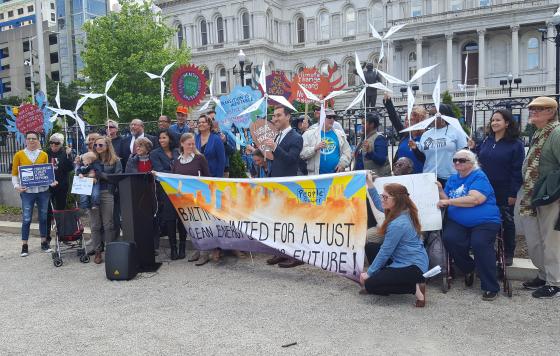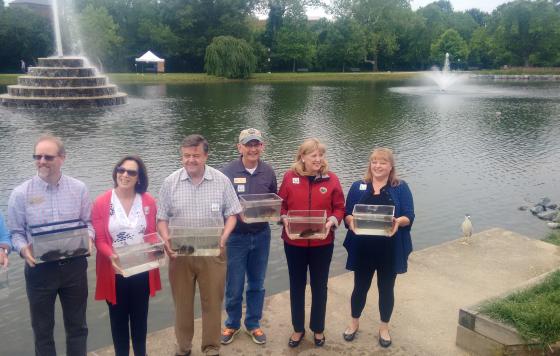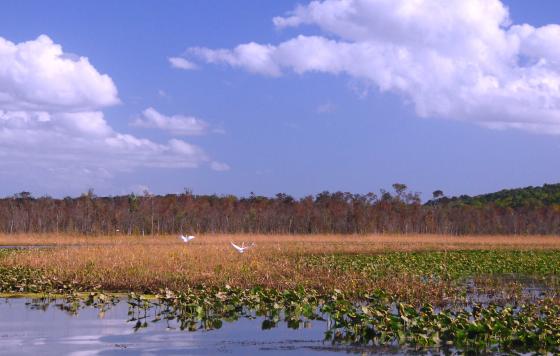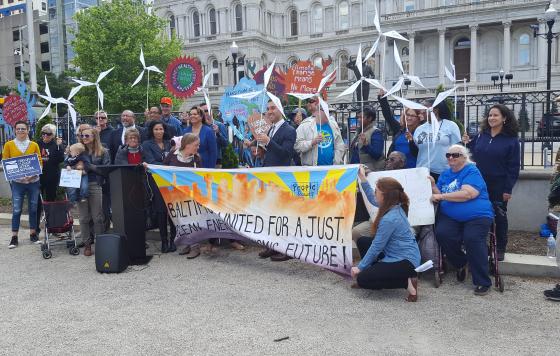Our 2026 Maryland Legislative Priorities
Maryland’s General Assembly begins today, and for the first time since 2018, Clean Water Action is not asking for your help in ending subsidies for burning trash under Maryland’s Renewable Portfolio. Your tireless support over the years made a difference, and the General Assembly ended these
Filter By:
Offshore wind companies agree to invest millions in Maryland
A few weeks ago, the Public Service Commission declared that the two offshore wind companies vying for Offshore wind Renewable Energy Credits could move forward with their plans to construct the nation's first utility-scale offshore wind farms off the coast of Ocean City - provided they met certain
Meeting Green Neighbors in Baker Park
Emily, Caitlin from the Potomac Conservancy, and I spent last weekend in downtown Frederick at the Green Neighbor Festival. This two-day gathering for environmentalists, gardeners, advocates, and families was planned by Hood College’s Center for Coastal and Watershed Studies (CCWS) and the Friends
A Watershed Conservation District for Mattawoman Creek
Last year, your overwhelming support
Maryland leads on offshore wind!
For the past few months, Clean Water Action members have been writing, speaking, and rallying for offshore wind in Maryland. And today, the Public Service Commission surprised advocates and business leaders alike by approving (PDF) both proposals to build offshore wind farms in the Atlantic waters
A New General Development Plan for Anne Arundel
On May 1st, Clean Water Action joined on a letter supporting , which asks the County Executive to begin the comprehensive review of the 2009 General Development Plan and to include civic participation into the review process.
Why does the General Development Plan matter?
The GDP is the vision for
Mobilize and Localize: catching up with our local work
A few weeks after Maryland's whirlwind of a legislative session, it's time to dive deep on our local level campaigns. Clean Water Action supporters across Maryland are fighting for clean air and water, healthy communities, a life-sustaining climate, and a meaningful democracy. Here's what's going







